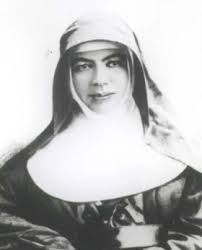Thirty Sisters of St Joseph from different parts of Australia and New Zealand celebrated fifty years of profession at Mount Street, North Sydney on January 6, 2015. Michael Whelan SM presided at the Mass and gave the homily.
[Preparing this homily prompted me to think of the women who would have been celebrating their golden jubilee in 1965. They would have been professed in 1915, just as the military machines in Europe were beginning their dreadful work. How did those golden jubilarians appear to you then? What do you think now? How do you experience time, as promise or threat?]
First Reading: Deuteronomy 1:29-32; 2:7
Psalm: “On Eagles Wings”
Second Reading: 1 Thessalonians 5:16-23
Gospel: Matthew 13:44-46
We are brought together in this sacred space by a fact of time: It is fifty years since you took your vows as Sisters of St Joseph. I say to you, “Well done!” Fidelity, commitment and sheer endurance over time are to be honoured.
Your very existence is a sign of hope to many even if they do not know you personally. You are a living reminder to us all that the truth will triumph over the lie, love will triumph over hatred, peace will triumph over violence. This is, in essence, the good news of the Kingdom. You, Sisters, are good news!
The primal revelation of Sinai in Exodus 3:1-15 reminds us that God both transcends time and meets us in time. The promise to Moses, “I shall be with you!” and proclaimed in today’s first reading, is fulfilled ultimately in the Incarnation. Jesus is the timeless one in time.
We who are his disciples will become timeless ones in time as we identify with him and he with us. Becoming witnesses in this way of timelessness not only holds the key to our personal holiness and effective ministry, it holds the key to our joy and our hope.
Time is sacrament. In the historical now our faith draws us to encounter the Eternal Now. One sign of Christian maturity is that the Eternal Now constantly governs our participation in the historical now.
Time can lie heavily on us when we do not experience it as sacrament. Possibly there have been moments over the past fifty years and more when you have known that heaviness. When we do experience time as
sacrament, however, when we have that lived awareness of the Eternal Now in the historical now, it is like finding a treasure or a pearl of great value. The Kingdom is like that.
In both stories of the Kingdom put before us in the Gospel today, we are told that the person “sells everything”. Be careful to note the sequence here. The “selling” only makes sense – and then makes eminent sense – in the light of the “finding”. If we have not found the treasure or the pearl, the “selling” can become a heavy, joyless, ego-centric exercise. If we have found the treasure or the pearly, the “selling” becomes an experience of liberation and joy.
St Paul’s call to joy and constant prayerfulness and gratitude is worth special consideration. There was a problem with time in the community of Thessalonica. It is a problem that has emerged more than once in history. Put simply, the problem is this: Some members of the community saw the historical now as irrelevant to the Eternal Now. The historical now was not experienced by them as sacrament. The sacramentality of time enables us to wait upon each moment even as we wait for the next moment. Sacramentality promotes presence, complete presence. Loss of sacramentality undermines our capacity to wait upon the moment, we tend to become trapped in waiting for the next moment. The lack of sacramentality promotes absence from the moment and its possibilities.
After I had almost completed my preparation for this homily I came upon a beautiful piece by Pope Francis. It is always comforting to find that the Holy Father agrees with you!
In one of his “Daily Meditations” given in the chapel at Casa Santa Marta on Tuesday November 26, 2013, Pope Francis said: “A Christian is a man or woman who knows how to live in the moment and also knows
how to live in time”. He went on to say “the Christian is able to move on the road of the moment”. Like St Paul in today’s reading, Pope Francis urges us to prayer and discernment in order to move along this “road of the moment”.
Thank you for the privilege of sharing this time with you. I conclude with the Pope’s final words in his meditation: “May the Lord grant us the grace to walk in wisdom. This, too, is a gift: that wisdom which, in the moment, leads us to pray and discern and which, in time, is God’s messenger that helps us to live with hope”.
Addenda
During the celebration, I was thrilled to find that I was given the words of St Mary Mackillop to introduce to the Prayers of the Faithful: “There where you are, you will find God”.
The 18th century Jesuit spiritual guide sums it all up nicely:
“If we are able to envisage each moment as the manifestation of the will of God, we shall find in it all that our heart can desire. For what can there be more reasonable, more perfect, more divine than the will of God? Can its infinite value increase through differences of time, place and circumstance? If you are given the secret of finding it at every moment in every event, you possess all that is most precious and worthy in your esires. What do you desire, holy souls? Do not hold back, carry your longings beyond all measures and limits, dilate your hearts to an infinite extent, I have enough to fill them: there is no moment at which I cannot make you find all that you can desire.” (Jean Pierre d Caussade, Abandonment to Divine Providence, Image Books, 40.)
